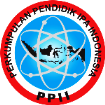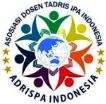Analysis of Science Learning Local Context (SeLoC) with Entrepreneurship Orientation for Life-Long Learning of Junior High School Students
Abstract
This study aims to explore how the implementation of Science Learning Local Context (SeLoC) with an entrepreneurial orientation can support the development of lifelong learning (LLL) skills in junior high school students. The study used a descriptive method with a mixed methods approach. This study involved 10 schools in Kupang as well as 20 science teachers and 200 students/ Instruments used included questionnaires, in-depth interviews, and observations. Data were collected through interviews with teachers and students, observations of the implementation of SeLoC in class, and questionnaires to measure student and teacher perceptions. Qualitative data analysis was carried out thematically to identify patterns of student engagement and entrepreneurship integration, while quantitative data were analyzed using descriptive statistics. The results of interviews with teachers showed that SeLoC integration was viewed positively because it was able to improve practical skills and student engagement in science learning. However, the implementation of SeLoC is still limited to extracurricular projects. From the results of student interviews, they felt more interested in science learning that was relevant to everyday life. Observations revealed that SeLoC had not been fully integrated into the formal curriculum. The results of the questionnaire showed the majority of respondents (50%) agreed that SeLoC encourages innovation in learning, 45% agreed that science results can be used for new products, and 50% agreed that SeLoC develops an entrepreneurial and ethical mindset. In lifelong learning skills, 45% of respondents agreed that science learning supports learning continuity and increases adaptation and motivation, and 40% agreed that it supports independent learning. This study recommends further development of the SeLoC curriculum and specific training for teachers.
Keywords:science learning, local context, entrepreneurship, life-long learning
Full Text:
PDFReferences
Acton, R., Salter, P., Lenoy, M., & Stevenson, R. (2017). Conversations on cultural sustainability: Stimuli for embedding Indigenous knowledges and ways of being into curriculum. Higher Education Research & Development, 36(7), 1311–1325.
Akben, N. (2020). Effects of the problem-posing approach on students’ problem solving skills and metacognitive awareness in science education. Research in Science Education, 50(3), 1143–1165.
Amalu, E. H., Short, M., Chong, P. L., Hughes, D. J., Adebayo, D. S., Tchuenbou-Magaia, F., … Oikonomou, T. I. (2023). Critical skills needs and challenges for STEM/STEAM graduates increased employability and entrepreneurship in the solar energy sector. Renewable and Sustainable Energy Reviews, 187, 113776.
Annan-Diab, F., & Molinari, C. (2017). Interdisciplinarity: Practical approach to advancing education for sustainability and for the Sustainable Development Goals. The International Journal of Management Education, 15(2), 73–83.
Astra, I. M., Aminudin, D., & Henukh, A. (2021). Enhancing students’ learning activities using problem-based learning model on temperature and heat concept. In Journal of Physics: Conference Series (Vol. 2019). IOP Publishing Ltd. Retrieved from https://doi.org/10.1088/1742-6596/2019/1/012025
Astra, I. M., Henukh, A., & Algiranto. (2021). Implementation of think pair share model in physics learning to determine cognitive, affective and psychomotor learning outcomes and student responses. In Journal of Physics: Conference Series (Vol. 1876). IOP Publishing Ltd. Retrieved from https://doi.org/10.1088/1742-6596/1876/1/012064
Bevan, B. (2017). The promise and the promises of making in science education. Studies in Science Education, 53(1), 75–103.
Biao, I. (2015). Lifelong learning as an instrument for human capital development in Benin. International Review of Education, 61(5), 631–653.
Boldureanu, G., Ionescu, A. M., Bercu, A.-M., Bedrule-Grigoruță, M. V., & Boldureanu, D. (2020). Entrepreneurship education through successful entrepreneurial models in higher education institutions. Sustainability, 12(3), 1267.
Bridge, S., Hegarty, C., & Porter, S. (2010). Rediscovering enterprise: developing appropriate university entrepreneurship education. Education+ Training, 52(8/9), 722–734.
Burns, R. (2020). Adult Learner at Work: The challenges of lifelong education in the new millenium. Routledge.
Ceschi, A., Perini, M., Scalco, A., Pentassuglia, M., Righetti, E., & Caputo, B. (2021). Foster employability and fight social exclusion through the development of lifelong learning (LLL) key-competences: reviewing twenty years of LLL policies. European Journal of Training and Development, 45(6/7), 475–511.
Creswell. (n.d.). Designing and Conducting Mixed Method Research.
Cummins, P., & Kunkel, S. (2015). A Global Examination of Policies and Practices for Lifelong Learning.
Dacre Pool, L., & Sewell, P. (2007). The key to employability: developing a practical model of graduate employability. Education+ Training, 49(4), 277–289.
Daniel, A. D. (2016). Fostering an entrepreneurial mindset by using a design thinking approach in entrepreneurship education. Industry and Higher Education, 30(3), 215–223.
Darling-Hammond, L., Flook, L., Cook-Harvey, C., Barron, B., & Osher, D. (2020). Implications for educational practice of the science of learning and development. Applied Developmental Science, 24(2), 97–140.
Dinc, E. (2019). Prospective teachers’ perceptions of barriers to technology integration in education. Contemporary Educational Technology, 10(4), 381–398.
Dolfing, R., Prins, G. T., Bulte, A. M. W., Pilot, A., & Vermunt, J. D. (2021). Strategies to support teachers’ professional development regarding sense‐making in context‐based science curricula. Science Education, 105(1), 127–165.
Doyle, L., Brady, A.-M., & Byrne, G. (2016). An overview of mixed methods research–revisited. Journal of Research in Nursing, 21(8), 623–635.
Dyrberg, N. R., Treusch, A. H., & Wiegand, C. (2017). Virtual laboratories in science education: students’ motivation and experiences in two tertiary biology courses. Journal of Biological Education, 51(4), 358–374.
Elangovan, N., & Sundaravel, E. (2021). Method of preparing a document for survey instrument validation by experts. MethodsX, 8, 101326.
Henukh, A., & Astra, I. M. (2021). The use of Google classroom as ICT literacy to improve physics students collaboration skill in industrial revolution 4.0. In AIP Conference Proceedings (Vol. 2331). American Institute of Physics Inc. Retrieved from https://doi.org/10.1063/5.0041660
Hilton, M. L., & Pellegrino, J. W. (2012). Education for life and work: Developing transferable knowledge and skills in the 21st century. National Academies Press.
Jones, C., & English, J. (2004). A contemporary approach to entrepreneurship education. Education+ Training, 46(8/9), 416–423.
Jufrida, J., Basuki, F. R., Kurniawan, W., Pangestu, M. D., & Fitaloka, O. (2019). Scientific literacy and science learning achievement at junior high school. International Journal of Evaluation and Research in Education, 8(4), 630–636.
Juuti, K., Lavonen, J., Salonen, V., Salmela-Aro, K., Schneider, B., & Krajcik, J. (2021). A teacher–researcher partnership for professional learning: Co-designing project-based learning units to increase student engagement in science classes. Journal of Science Teacher Education, 32(6), 625–641.
Kim, S., Raza, M., & Seidman, E. (2019). Improving 21st-century teaching skills: The key to effective 21st-century learners. Research in Comparative and International Education, 14(1), 99–117.
Kimmons, R., Graham, C. R., & West, R. E. (2020). The PICRAT model for technology integration in teacher preparation. Contemporary Issues in Technology and Teacher Education, 20(1), 176–198.
Kirkwood, J., Dwyer, K., & Gray, B. (2014). Students’ reflections on the value of an entrepreneurship education. The International Journal of Management Education, 12(3), 307–316.
Lai, W. F. (2023). Integrating sociocultural perspectives into a university classroom: A case study of students’ experience. Heliyon, 9(6). Retrieved from https://doi.org/10.1016/j.heliyon.2023.e17228
Maison, L. M. (2023). Beyond Western and Indigenous Perspectives on Sustainability: Politicizing Sustainability With the Zapatista Rebellious Education. Journal of Transformative Education, 21(1), 41–58. Retrieved from https://doi.org/10.1177/15413446221079595
Mangi, A. U. D. M., & Marseto, M. (2023). PENGARUH TINGKAT PENGANGGURAN, INFLASI, DAN PERTUMBUHAN EKONOMI TERHADAP KEMISKINAN DI NTT. Equilibrium: Jurnal Penelitian Pendidikan Dan Ekonomi, 20(02), 257–265.
Mazzocchi, F., Simandan, D., Demneh, M. T., Morgan, D. R., Ghazinoory, S., Saghafi, F., & Mirzaei, M. (2018). Why ‘Integrating’Western science and Indigenous knowledge is not an easy task: What lessons could be learned for the future of knowledge. Journal of Futures Studies, 22(3), 19–34.
McKim, C. A. (2017). The value of mixed methods research: A mixed methods study. Journal of Mixed Methods Research, 11(2), 202–222.
Pittaway, L., & Edwards, C. (2012). Assessment: examining practice in entrepreneurship education. Education+ Training, 54(8/9), 778–800.
Ramdani, A., Jufri, A. W., Gunawan, G., Fahrurrozi, M., & Yustiqvar, M. (2021). Analysis of students’ critical thinking skills in terms of gender using science teaching materials based on the 5E learning cycle integrated with local wisdom. Jurnal Pendidikan IPA Indonesia, 10(2), 187–199.
Saputri, A., Yulastri, A., Yuliana, Y., Saputra, H. K., & Fiandra, Y. A. (2024). Entrepreneurship-Based School Management Model to Increase Entrepreneurship Interest of Vocational Education Students. Al Qalam: Jurnal Ilmiah Keagamaan Dan Kemasyarakatan, 18(5), 3238–3255.
Sholeh, M. I., Mohamed, M. R. A. A., Sokip, S., & Syafi’i, A. (2024). The Application of Entrepreneurial Models in the Development of Educational Management Curriculum. Al-Aghniya: Journal of Syariah Business Management, 1(1), 33–42.
Sjöström, J., & Eilks, I. (2018). Reconsidering different visions of scientific literacy and science education based on the concept of Bildung. Cognition, Metacognition, and Culture in STEM Education: Learning, Teaching and Assessment, 65–88.
Sutaphan, S., & Yuenyong, C. (2019). STEM education teaching approach: Inquiry from the context based. In Journal of Physics: Conference Series (Vol. 1340, p. 012003). IOP Publishing.
Umbu Djuma Mone Mangi, A. (2023). Equilibrium: Jurnal Penelitian Pendidikan dan Ekonomi Pengaruh Tingkat Pengangguran, Inflasi, Dan Pertumbuhan Ekonomi Terhadap Kemiskinan Di NTT, 20, 2. Retrieved from https://journal.uniku.ac.id/index.php/Equilibrium
Wahyuni, S., Sari, J., Palittin, I. D., & Henukh, A. (2023). Development of Student Worksheets Based on Etno-STEM on Sound Waves. Physics Education Journal, 6(1), 37–45. Retrieved from http://jurnal.unipa.ac.id/index.php/kpej
DOI: http://dx.doi.org/10.24014/jnsi.v7i2.33144
Refbacks
- There are currently no refbacks.

Journal of Natural Science and Integration
E-ISSN: 2620-5092 P-ISSN: 2620-4967
Published By:
Department of Science Education, Faculty of Education and Teacher Training,
State Islamic University of Sultan Syarif Kasim Riau, Indonesia
Mailing Address:
Jl. H.R Soebrantas Km. 15 No. 155
Kelurahan Simpang Baru
Kecamatan Tuah Madani, Pekanbaru, Riau, Indonesia
Email: jnsi.tadrisipa@uin-suska.ac.id
Indexed By:
Journal of Natural Science and Integration is licensed under a Creative Commons Attribution 4.0 International License.


_-_Copyy2.png)






.jpg)
.png)
.jpg)
.jpg)




